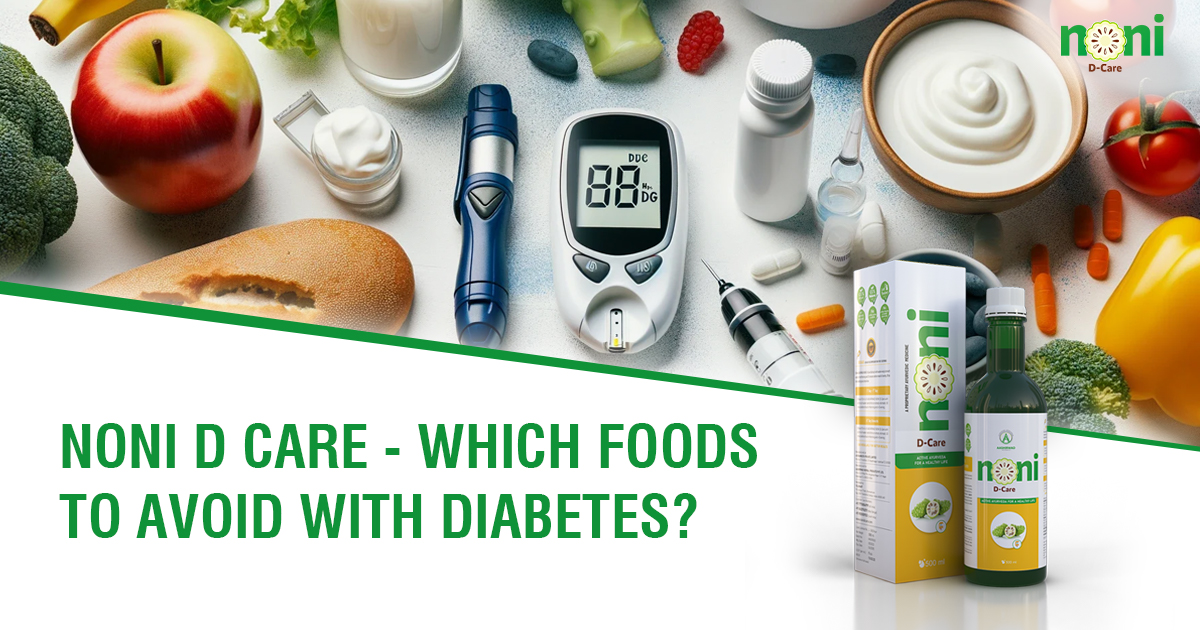Which Foods To Avoid With Diabetes?

Confused about what to eat and what not to in diabetes? Feeling fearful whether any food would make your diabetes worse? It's true that to manage diabetes, one needs to make a mindful selection of food and find ones that are to be avoided. Some food elevates the level of sugar causing complications along the way. By the time you finish reading this blog, we are sure you will be ready to make the right food choices and also learn which foods to avoid with diabetes.
Understanding the diabetes diet is crucial for this process. By following a type 2 diabetes diet, you can better manage your blood sugar levels. Additionally, utilizing a diabetic food chart and creating a diet chart for diabetic patients can guide you in making healthier food choices.
Diabetes and Dietary Effects
Diabetes causes high levels of glucose in the blood. This may be due to type 1 diabetes when your body doesn't make enough insulin or type 2 diabetes when your body doesn't utilize insulin adequately. In both types of diabetes, diet has a key role to play in maintaining the levels of blood sugar. And this makes it important for individuals to be sensible of what they consume.
Foods with Excessive Sugar
It's a known fact that food with excessive sugar elevates blood sugar levels. Foods such as cakes, pastries, chocolates, and other confectionaries are abundant in sugar. Likewise, beverages like energy drinks, fruit juices, and sugared teas are a few sugary beverages that may cause a rise in sugar levels leading to additional problems for diabetics.
Fine Carbohydrates
Highly processed carbs like white rice, pasta, white bread, and fine flour cause a rapid rise in blood sugar levels. The processing of foods leads to peeling off fiber and nutrients, making them low on fiber and hard for digestion and absorption. Go for whole grains such as brown rice, whole grain bread, and whole grain pasta rich in fiber and nutrients to make it gentler on blood sugar levels.
Vegetables with Starch
Studies show that the consumption of starchy vegetables and white potatoesincreases the risk of metabolic syndrome. American Medical Association states that white potatoes may spike blood sugar levels more than sugary doughnuts. Corn and peas havea high glycemic index. It's best to opt for a diet rich in green vegetables rather than the starchier ones to effectively control blood sugar levels.
Processed Foods
Foods that contain a high measure of sodium, sugar, and fats make them harmful to diabetes patients. Diabetes patients should avoid or limit frozen foods, snacks, chips, and processed meats. These foods not only elevate blood sugar levels but are equally harmful to general health as well.
Sugary Cereals
Loads of breakfast cereals are out there in the market claiming to be healthy yet they are laden with sugars. Beginning your day with high sugar content may bring fluctuations in sugar levels. Of all other forms of corn products, cornflakes are found to have a high glycemic index, and what to say if they are added with sugar? While picking breakfast cereals from store shelves, make sure they are less in sugar content and high in fiber. Set your sights on berries, whole fruits, vegetables, and eggs for breakfast that won't disturb your blood sugar.
Sugary Flavoring
Relishes or seasonings like sauce, ketchup, or sweet chili have added sugar, making your food extra sugary. Healthier options like salad dressing are no less on sugar. Keep an eye on the labels of food items while taking them off the shelves for low-sugar or sugar-free options. It is best to prepare your seasonings or dressings with natural ingredients to control sugar intake.
Dried Fruits and Fruit Juices
Though fruits are usually a healthier option, fruit juices and dried fruits are not deemed as a better choice for individuals with diabetes. Fruit juices have no fiber that's found in whole fruits. Lack of fiber hastens the sugar absorption into the blood. Dried fruits if taken in large quantities can elevate sugar levels sharply. Choose whole fruits and limit the intake of juice and dried fruits for healthier sugar levels.
Alcohol
We don't need to tell you about the general bad effects of alcohol. It is something that can never have a positive impact on any health issue. Research says a healthy individual with diabetes has a chance of a spike in blood sugar levels with long-term use of alcohol. On the contrary, long-term use of alcohol may result in critically low blood sugar levels in an unhealthy person.High calories in alcoholic beverages add to weight gain. Choosing to drink alcohol is risky but if you do so, moderation is the key.
Packing Up
Diabetes doesn't solely involve monitoring blood sugar levels, it demands attention to what you consume. Steering clear of foods that may result in elevated blood sugar levels, you can maintain your health and cut the risk of complications. Aim at having whole, fiber-rich, nutrient-rich foods and restrict consumption of processed, refined, and sugary goods. It's better to handle diabetes and improve overall health by following a balanced and sensible approach toward foods.
